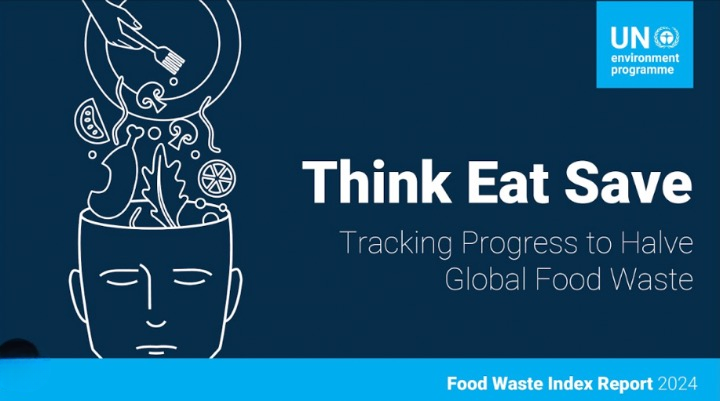Food Waste Index Report 2024

- 29 Mar 2024
Why is it in the News?
As per the Food Waste Index Report for 2024, households worldwide discarded more than one billion meals daily in 2022.
About UNEP Food Waste Index Report 2024:
- The United Nations Environment Programme (UNEP) Food Waste Index Report 2024, co-authored with the Waste and Resources Action Programme (WRAP), offers a comprehensive analysis of the state of global food waste.
- The report reveals alarming trends, including the wastage of over 1 billion meals per day in 2022, highlighting the urgency to address this critical issue.
Key findings from the report include:
- Per Capita Waste: The average annual food waste per person amounts to approximately 79 kilograms (or around 174 pounds).
- This equates to over a billion meals being wasted daily worldwide, underscoring the significant inefficiencies in current food consumption habits.
- Sources of Waste: Household waste constitutes the majority, around 60%, with food service establishments (such as restaurants) contributing approximately 28%, and retailers making up about 12%.
- This breakdown suggests that interventions targeting consumer behavior could have a substantial impact on reducing overall waste.
- Environmental Impact: Food loss and waste contribute to 8 to 10% of global greenhouse gas emissions.
- Comparatively, if food waste were considered a country, it would rank as the third-largest emitter of greenhouse gases globally, trailing only China and the United States.
- This stark comparison underscores the urgent need to address food waste not only for resource efficiency but also as a crucial aspect of climate action on a global scale.
- Global vs. Local Impact: The report highlights that food waste is a pervasive issue affecting both high-income and lower-income countries alike.
- This universality implies that solutions must be adaptable and scalable across various socioeconomic contexts.
- Collaborative Solutions: Governments, regional entities, industry stakeholders, and non-profit organizations are increasingly involved in public-private partnerships to combat food waste.
- Effective strategies, such as food redistribution through initiatives like food banks and charities, are recognized as vital for reducing waste while simultaneously supporting vulnerable communities.
Recommendations:
- The Food Waste Index Report by UNEP emphasizes the urgent need for comprehensive action, both globally and locally, to tackle the issue of food waste.
- By illuminating the extent and origins of waste, as well as its significant environmental and social repercussions, the report advocates for collaborative efforts across all sectors to establish sustainable food systems.
- The target of halving food waste by 2030 is not only in line with environmental goals but also represents a crucial step towards reducing global hunger and promoting a fairer distribution of food resources.
- As nations strive to achieve this objective, the report underscores the interconnectedness of food security, environmental sustainability, and economic viability.
- It presents addressing food waste not only as a moral and environmental imperative but also as a practical opportunity to bolster global food security and combat climate change.
